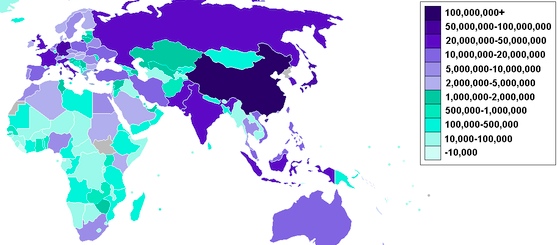An ICT4E Lesson Learned: Offline Content is Key

I recently made one of the biggest ICT4D mistakes in the book. Pay close attention, and see if you can pick it out.
When I was in Arusha, Tanzania last month, I was working with a primary school that recently set up a learning lab with 13 donated computers. The technology was not being used because the teachers were not sure how it could be leveraged for education. The computers were simply collecting dust.
The semester before the trip I wanted to develop something that would allow the school to use the computers effectively. I began searching for online educational content relevant to the Tanzanian curriculum and found all sorts of learning materials, games, and software downloads. Once I had collected a good chunk of quality content, I created a website and placed links to each of my findings alongside the specific curriculum objective that they addressed.
Did you catch it? My big mistake, I mean…
The school wasn’t connected to the Internet yet. How could I possibly have overlooked something like that?
To make a long story short, even though I was told the school would be connected when I arrived, there were some bureaucratic problems that slowed the process of getting Internet access there. About three weeks into my trip, the Internet was finally hooked up, but the wait had cut into the majority of the time that I had allocated for teacher training.
Moral of this story: Do not rely on the Internet. Offline content is key.
While Internet access is spreading rapidly throughout developing countries, it is important that ICT4D projects do not place all of their trust in its availability. There are still countless communities throughout world without access, and many of these communities have several obstacles preventing them from obtaining access. Even when rural communities have the infrastructure to connect, Internet subscriptions in these areas can constitute a large percentage of per capita income. Individuals simply cannot afford Internet access.
It’s important to note that access is not the only issue. Let’s imagine for a second that the school I was working with did have Internet when I arrived. This still would have been problematic since bandwidth in most developing countries remains limited – definitely not conducive to streaming online educational games and videos.
Relying on Internet content also makes projects less transferable. If I found that my idea was successful, and I wanted to scale it out to other schools, I would likely run into the same Internet issues elsewhere. In using the cloud as a solution, remember that weather is always local. Having offline content is much more reliable and practical.
The good news is that there is tons of content that can be downloaded from the Internet in order to accumulate offline content. Wikipedia allows you to download entire libraries of information, and I found plenty of open source educational games that proved to be very helpful to the instructors at the school.
So how did I fix my project?
By the end of my trip, the entire focus had shifted from allocating online material on the website to installing offline content on the computers. This proved to be a much more reliable means of technology use in the school.
.
Get ICTworks 3x a week – enter your email address:
![]()




































